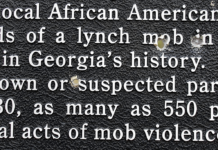It’s Black Lives Matter At School Week and one of the platforms of the week is the removal of school resource officers. Schools don’t necessarily need police officers full time. Many schools don’t have them and get along just fine and if you believe that all schools should do that I can’t really argue. However, not every school with school resource officers has the problems that have been highlighted. Mine didn’t. This is because just like outside of school, the main problem with policing is less about presence and more about implementation.
The Department of Justice classifies school resource officers (SRO) as “sworn law enforcement officers responsible for safety and crime prevention in schools.”. The inclusion of officers in schools has never been particularly popular everywhere but as police brutality has become a hot button issue, calls have grown to examine the presence of police officers in schools as well.
Some people allege SROs are too quick to get physical in confrontations with students and are used for incidents that don’t necessitate the presence of law enforcement. These charges come on the heels of several viral videos showing controversial interactions with the police.
These interactions have led some people to believe that officers have no place in schools at all. I don’t personally have a terribly strong opinion about whether officers remain in schools or not but I do believe that their presence is not inherently problematic.
The problem with school resource officers isn’t their existence it’s their usage.
All across the country schools are using their embedded police officers to do things they were never intended or trained to do. In one well-known incident, a police officer was summoned to essentially confiscate a phone. That is an extremely heavy-handed response for a routine teenage problem and predictably it went south. My school has no SRO and we are able to handle every phone confiscation at the classroom level. That problem was highlighted as a problem with the individual officer as it should have been but it was a systemic problem because at some point a teacher or administrator called the officer in for that situation. A failure across the board.
So, what should school resource officers do and not do?
DO: Protect against actual crime
This is the primary reason officers should be in schools. This includes things like preventing and diffusing potential attacks. Confiscating weapons and drugs. Even breaking up fights at the high school level. (No need for that kind of force in elementary)
DON’T: Enforce basic classroom expectations
Students talking, not sitting down, playing on their phones or even refusing to leave are all things well within the domain of teacher and administrators.
DO: Build relationships with students
Having friendly officers in schools can go a long way to bridging the gap outside of school. Officers should be involved in a variety of non-expectation enforcing activities in school. In some schools’ officers even teach or coach.
DON’T: Become the dean of discipline
Closely related to not enforcing classroom expectations, SROs should also not be used as informal deans of discipline. When students get “sent to the school resource officer’s office” for minor infractions you normalize that benign violations of school rules are the domain of police officers which opens them up to overuse.
Some people believe that simply having officers in schools predestines them to be misused and there is some truth to that. But at the end of the day, it is up to administrators and districts to ensure SROs are being used correctly. It might also be a matter of training the officers to recognize when they should and shouldn’t be used as well. Although it is generally frowned upon, a school resource officer should have no problem telling someone “that’s not my job.”










